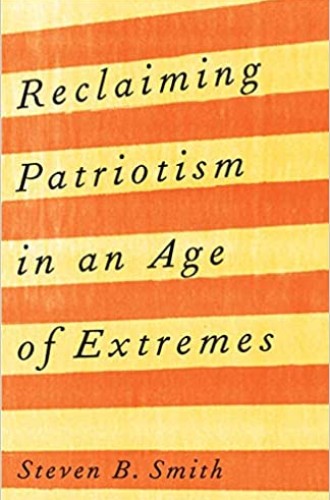Rescuing patriotism from nationalism
Constitutional patriotism, Steven Smith argues, is both ethical and necessary.
At this moment America is beset with political anxieties and divided over their resolution. These differences play out in contrasting attitudes concerning patriotism, and Christians reflect these contrasts. Many lean into a version of patriotism that borders on sheer nationalism. At the opposite pole, a few, sometimes calling themselves Christian anarchists, speak not only of church separation from state authority but even of outright hostility to that authority. It is hard to see how both of these perspectives can be sound; one way or another, blinkered awareness exists within the Christian fold.
Steven B. Smith, a political philosopher at Yale, addresses the current American moment in his new book. He alludes immediately to a classic 1984 lecture by Alasdair MacIntyre entitled, “Is Patriotism a Virtue?” MacIntyre is sympathetic to patriotism yet doubtful that it can be squared with true morality’s universalist commitments. Smith argues, however, that patriotism is necessary and morally justifiable. It is, indeed, “the most important political virtue.”
How does Smith’s argument unfold? Stressing that he is attending to “American patriotism,” Smith first of all explores the link between patriotism and loyalty. All human associations and institutions, he says, hang together on the basis of shared appreciation and gratitude for some “common enterprise,” like a home or a team or a way of life. Such loyalty involves consensus, or at least substantial agreement, concerning some preferred part of what exists. At the same time, it is one response to the human yearning to belong.





